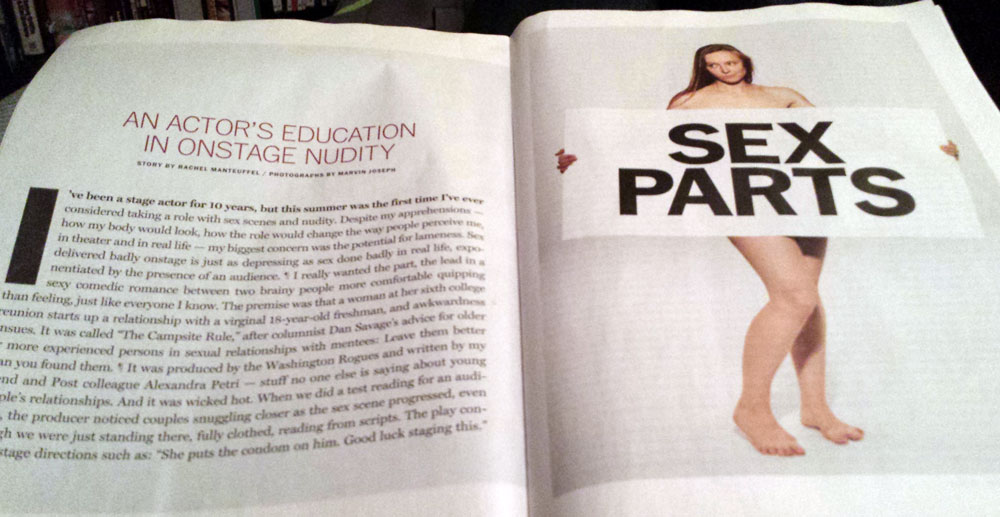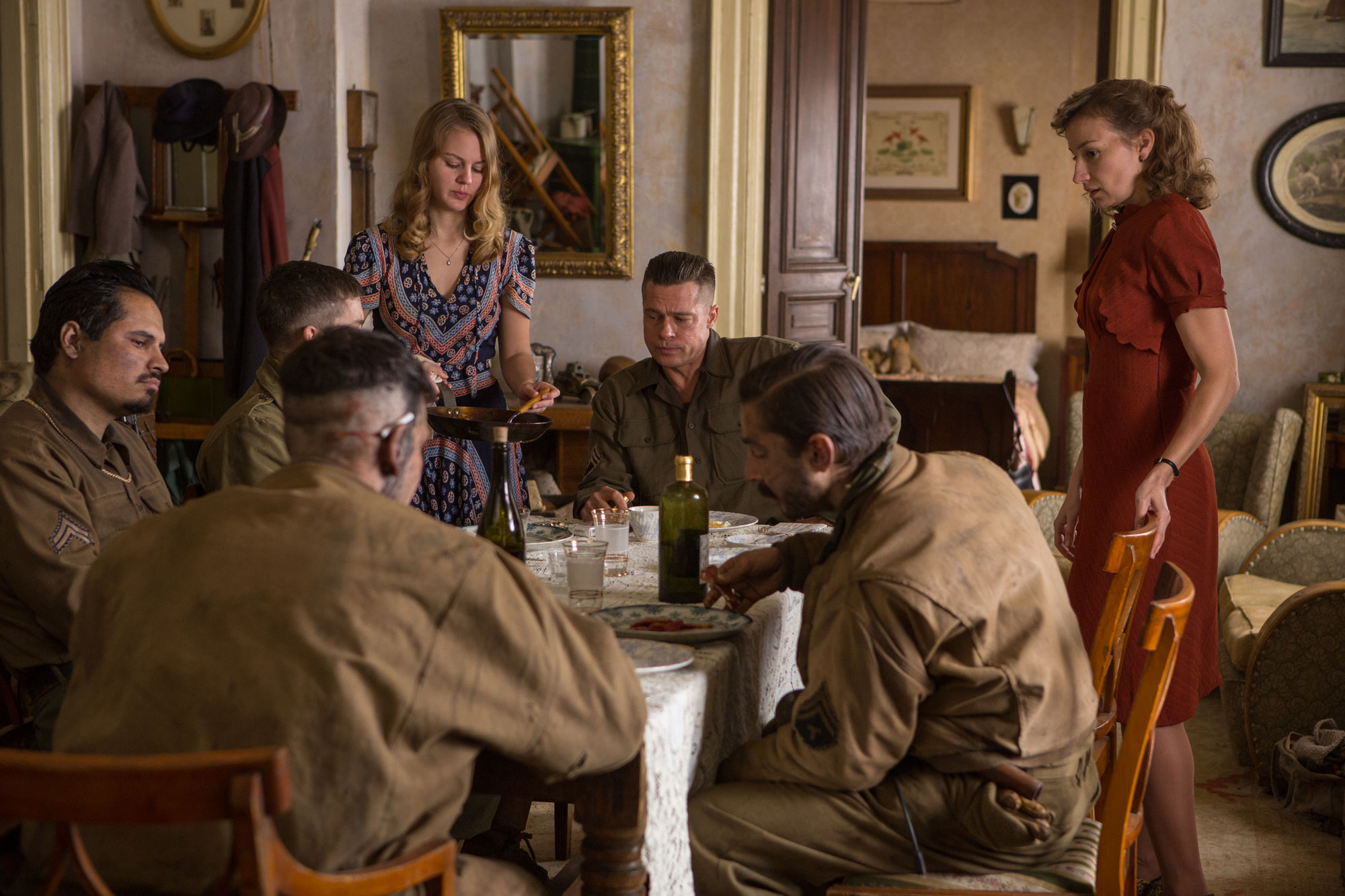I was an admirer of Rachel Manteuffel's writing for years before I got to know her, so kindly disregard that she's my best gal when I say unto you that it is imperative you read her essay in today's Washington Post Magazine entitled "Sex Parts." (Not her title, by the way.) It's about her decision to take a role in a play last summer that required her to perform a pair of sex scenes as explicit as I can ever recall seeing on stage–and I've been getting paid to review plays for six or seven years now.
The play was The Campsite Rule, a wicked-smart sex comedy by Washington Post humor columnist Alexandra Petri. Not enough people saw it. There was no WaPo review, for numerous, complicated, and infuriating reasons, though my Washington City Paper colleague Trey Graham gave it an admiring notice, as did most of the theatre websites in town. I badgered my friends to go. I made sure I had my tickets to return on closing night before I plugged the show on NPR's Pop Culture Happy Hour, so confident was I that the local DC contingent of the million people who download that podcast each week would instantly snap up all remaining seats once I told them about this smart, funny, sexy play written by and directed by and starring smart, funny, sexy women. I didn't even mention the explicit sex!
Shows what I know.
Rachel's day job is in the WaPo editorial department, where she regularly deals with big, important Washington types. She's a seriously accomplished journalist outside of Editorial; she won a Livingston Award for this 2012 Washingtonian story about precious objects left at the Vietnam Wall, and she was the first reporter in a city teeming with 'em to point out after the Martin Luther King, Jr. Memorial opened it 2011 that it misquoted the man.
All of which is to say she has an additional, entirely different set of reservations about sex and/or nudity than a full-time actor might have. Imagine showing up to interview someone at the Department of the Interior about that MLK memorial only to have that person realize 10 minutes into your conversation that they saw your boobs in a play one time. DC is a small town.
Rachel had knocked the play's lead role of Susan–a librarian in her mid-twenties who returns to her college for homecoming weekend and deflowers an 18-year-old freshman–out of the, er, Kennedy Center when she played it in a staged reading at the Page-to-Stage festival in September of last year. Since then, she and I had both hoped she'd have the chance to play it in a full production. There aren't many plays about women as smart and weird and generous as Rachel. Not 2,400 years ago and not now. But Susan was a rich character, containing multitudes (and occasionally, a lucky freshman's penis). It was a role Rachel desperately wanted and deeply deserved, and to the surprise of nobody who knows her, she played the hell out of it.
But it wasn't easy. The Campsite Rule's candor and insight into sex and relationships and vulnerability and risk was exactly what made it a play worth doing, pun intended. It was also something that cost Rachel a lot of sleep in the months before the show opened. We talked about the what-ifs. What if she were asked to do something she felt was exploitative? What if the actor cast as Lincoln, the sweet kid she has to rescue from his virginity onstage every night, was a jerk?
Neither of those grim possibilities happened, mercifully. Playing Susan might've been the highlight of her performing career, and it delighted me to see her so delighted during the month the play ran. Now The Campsite Rule has given her one more gift, Rachel's terrific essay reflecting on the logistical and aesthetic problems of performing a sex comedy live. I promise you it's the funniest and most insightful thing you'll ever find in in the family-friendly pages of the paper that brought down President Nixon about pretending to bone someone in front of your parents and coworkers and exes and people from your church. Read it. Team Manteuffel Forever.









